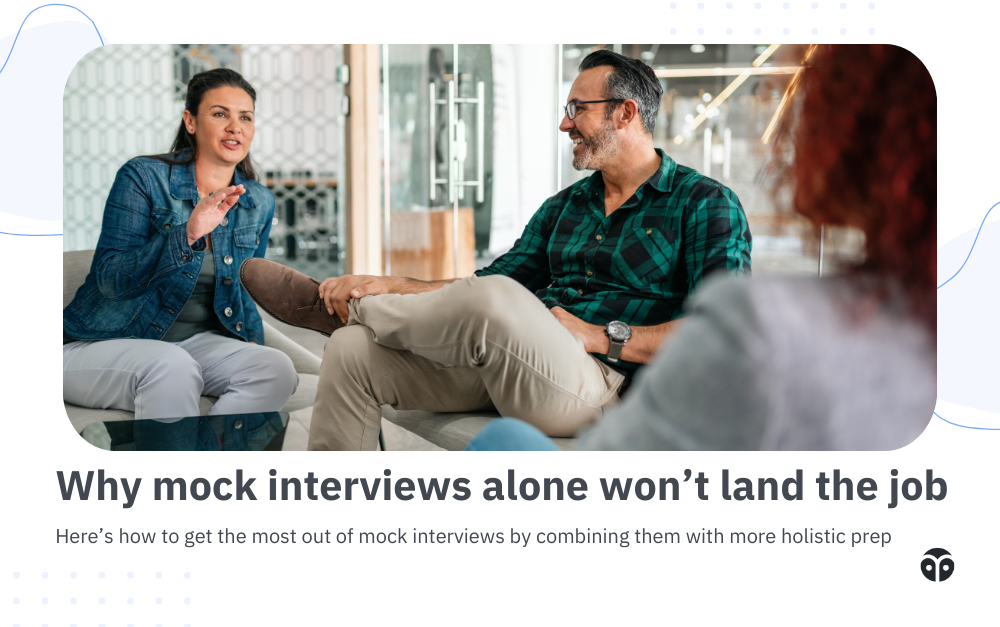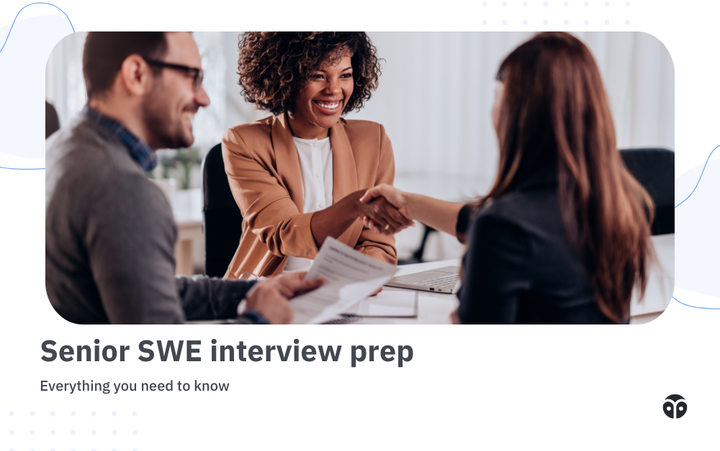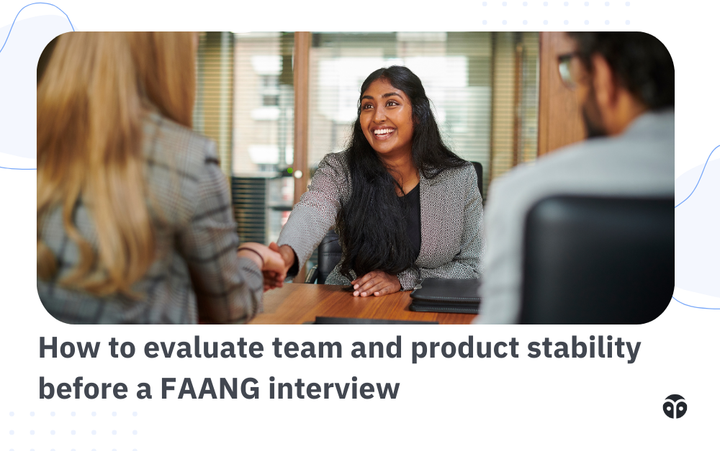Why mock interviews alone won’t land you the job
Pair mock interviews with other prep techniques for a more holistic approach. Here's how.

When preparing for technical interviews, many candidates gravitate toward mock interviews as their primary preparation tool. It makes sense on the surface—mock interviews simulate the interview environment, provide real-time feedback, and allow you to practice your skills under pressure. But while mock interviews have their place, using them in isolation isn’t the most effective way to fully prepare.
Here’s how to use them well and what you can do to supplement them for a more holistic approach to prep.
What mock interviews are designed to do
Mock interviews are useful because they simulate real interview conditions. You’re put on the spot to solve problems while being observed, which helps mimic the pressure of an actual interview. They also offer a valuable opportunity to manage nerves and practice communicating your thought process to an interviewer.
Some of the key benefits of mock interviews include:
- Simulating real interview conditions
- Offering practice solving problems under time constraints
- Helping manage nerves and practice under pressure
- Providing a chance to explain your thought process out loud
What mock interviews don’t do
One of the primary reasons mock interviews fall short is that they focus on feedback regarding how you present yourself rather than on actually helping you learn new skills. This means that mock interviews tend to evaluate what you already know, rather than helping you learn and internalize new skills. The mock interviewer's job is to not to coach you or unblock you during the interview. In fact, they’re a bad interviewer if they do. You could be going down the wrong path, and since they won’t (and shouldn’t) stop you and correct you, you’re relying on their feedback in the end to learn how to improve.
This tactic has its place. Mock interviews are best to evaluate if you are ready for the real deal vs. providing a real-time coaching and learning opportunity. But that means if your primary goal is to improve your technical abilities, mock interviews alone won’t get you there.
Candidates may get feedback that points to a weakness, but unless they take the time to practice and refine that area, they end up struggling with similar issues in the next mock interview. It’s a cycle that can leave you feeling stuck without a clear path to improvement.
When and how to use mock interviews
Mock interviews are best used later in your preparation once you’ve built up strong technical skills. At that point, they’re a great way to fine-tune your interview performance and manage any lingering nerves. Early on, doing a few mock interviews to identify where you stand and what to focus on improving is helpful. After that, your focus should shift to building your skill set, with mock interviews serving as a final check before the real thing.
A more holistic approach to interview prep
To truly prepare for technical interviews, it’s important to go beyond just mock interviews. A well-rounded approach will help you fill in the gaps and give you the confidence to tackle whatever comes your way.
Here are three strategies to supplement mock interviews:
1. Build a strong foundation
Before diving into complex problems, make sure your basics are solid. Most tough interview questions are built on foundational concepts. Mastering these fundamentals will set you up for success when things get more challenging. Hone your technical problem-solving skills.
2. Work with others in group sessions and pair programming
Collaborating with others is a great way to improve your problem-solving skills and communication. Group sessions and pair programming allow you to see different approaches, get feedback in real time, and practice explaining your solutions. Plus, it mimics the teamwork aspect of real-world job settings.
3. Get into good feedback loops
Effective feedback is key to improving quickly. After identifying your weak areas in mock interviews or coding practice, make sure you’re actively working on them. Seek out feedback from mentors, peers, or online communities and apply it consistently. This helps you avoid making the same mistakes over and over, turning feedback into a tool for real growth.
4. Maximize learning from every problem
The best opportunity to learn from a practice problem is after you’ve found a working solution. Take time to reflect: what went well, what mistakes were made, and why? Can the code be improved for efficiency or readability? Could you approach similar problems differently next time to arrive at an optimized solution more quickly? Analyzing these aspects ensures continuous improvement and helps you solve future problems more effectively from the start.
Get holistic interview prep with Formation
The Formation Fellowship gives mid-level and senior engineering job seekers everything they need to land their dream roles—including personalized skill brush-ups, resume help, unlimited mock interviews with experienced software engineers and hiring managers from top-tier tech companies, career and negotiation support, and more.
If you’re having trouble navigating your job search on your own, apply here and get unconditional support from a team of engineering mentors, technical recruiters, career coaches, and more.



